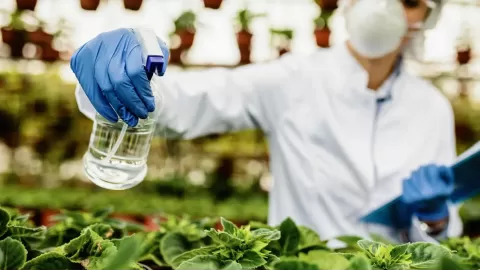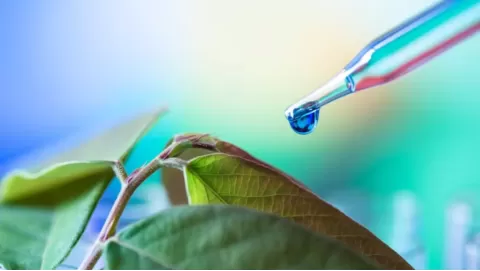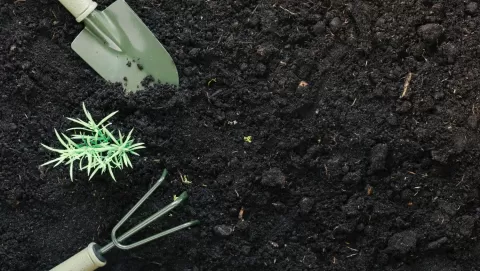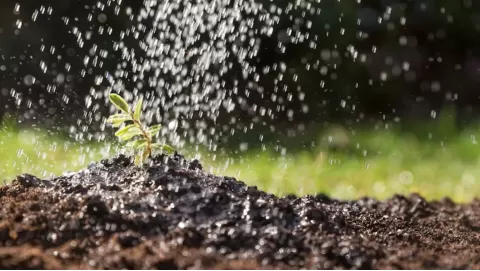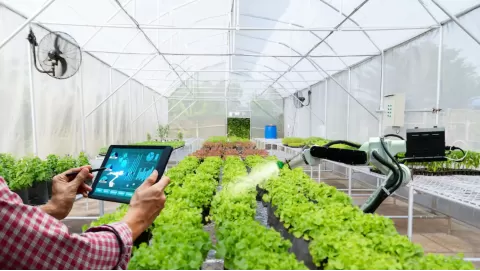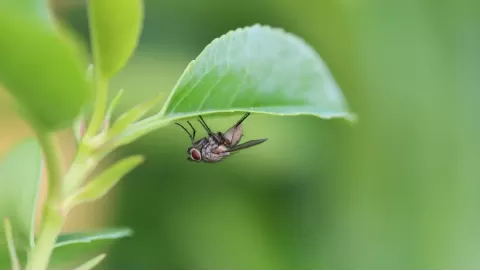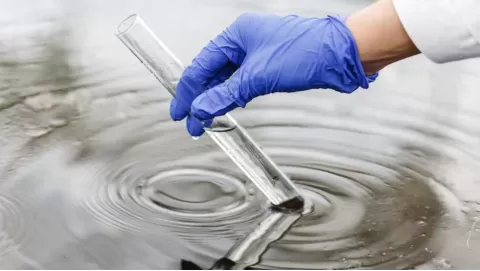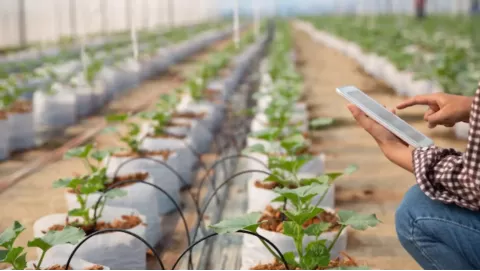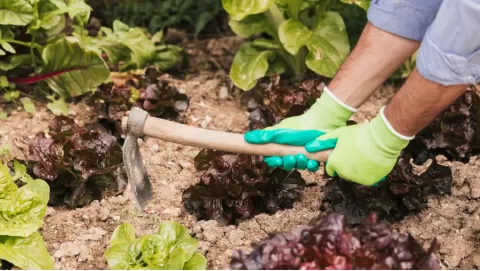
Preserving Terpenes Naturally: The Impact of Terpene Belt Farms on Agriculture
- What: Terpenes are natural aromatic compounds that give plants their unique scents and flavors, offering benefits beyond fragrance.
- Ideal For: Farmers and industries looking to enhance plant health, attract pollinators, and naturally repel pests.
- Benefits:
- Boosts crop health by fending off diseases and environmental stress.
- Attracts pollinators like bees and butterflies for better yields.
- Acts as a natural pesticide, repelling harmful pests without chemicals.
- Innovations:
- Fresh Never Frozen®: Ensures terpene purity by processing plants immediately after harvest.
- Solventless Extraction: A chemical-free method that preserves terpene potency and quality.
- Pro Tip: Use cannabis-derived terpenes not just for farming but also in aromatherapy, food, cosmetics, and pharmaceuticals for a natural edge.
Ever wonder why some plants smell like a spa while others smell like your old gym socks? That’s the magic of terpenes! These natural compounds are responsible for the unique aromas, flavors, and even pest-resisting powers of plants. Beyond their charming fragrances, terpenes play a vital role in agriculture—improving crop health, attracting pollinators, and naturally deterring pests. Think of them as the hidden supporters of the plant world.
Terpene Belt Farms's role here is significant. The company is leading terpene industry, dedicated to preserving these aromatic wonders naturally. Nestled in California’s famed Terpene Belt, this company isn’t usual farming—they’re “fragrance farming.” Their revolutionary Fresh Never Frozen® approach and solventless extraction methods ensure the purest terpenes, setting new standards for sustainability and quality.

While other companies freeze, dry, or cure their crops, Terpene Belt Farms keeps things fresh—literally. They’re not only preserving terpenes, but also preserving the essence of nature itself. With an innovative mindset and a dash of environmental responsibility, Terpene Belt Farms proves that farming can smell as good as it feels for the planet. Because let’s face it, saving the world smells a whole lot better with terpenes around!
What Are Terpenes, and Why Are They Important in Agriculture?
Terpenes are like the plant world’s very own perfumes, packed with personality. These natural compounds give plants their unique scents and flavors—from the citrusy zing of a lemon to the piney freshness of a forest. But terpenes are not only about smelling good; they’re agricultural transformers.
Here’s why terpenes are a farmer’s best friend:
- Plant Health Boosters: Terpenes can strengthen a plant’s immune system, helping it fend off diseases and environmental stressors.
- Pollinator Magnets: Sweet-smelling terpenes attract bees, butterflies, and other pollinators, ensuring crops thrive.
- Pest Control Champs: Some terpenes act as natural repellents, giving pests the boot without harmful chemicals.
Terpene Belt Farms takes terpene production to the next level with two distinct product lines. Their Native Terpenes are 100% derived from Cannabis Sativa L, offering an authentic cannabis experience, while their Enhanced Natural or Botanical Terpenes provide high-quality, versatile blends crafted from diverse natural sources.
In agriculture, terpenes are quietly working behind the scenes to create healthier, more resilient ecosystems. Who knew that plants’ love of aromatherapy could pay off so handsomely?
Improving Plant Health
Think of terpenes as plant wellness coaches. They help plants stay strong, grow better, and resist the many challenges thrown at them.

Terpenes improve a plant’s ability to:
- Ward off diseases by producing antimicrobial properties.
- Handle stress by protecting against environmental shocks like drought or extreme temperatures.
- Communicate distress by signaling neighboring plants about potential threats.
So, next time you see a vibrant, healthy plant, you might just be witnessing the power of terpenes in action. It’s like nature’s version of a daily multivitamin—just a lot more fragrant.
The purity of TBF’s Native Terpenes, derived from 100% Cannabis Sativa L, ensures that the plant’s natural properties are captured intact, making these terpenes an unparalleled choice for improving agricultural resilience naturally.
Attracting Pollinators
Pollinators, like bees and butterflies, are nature’s hard-working matchmakers, helping plants reproduce and thrive. Terpenes act like nature’s “perfume counters,” offering a range of irresistible scents that lure these helpful creatures. It’s like speed dating for plants and pollinators—quick, effective, and beautifully fragrant!
Here’s how terpenes connect specific pollinators to plants:
| Pollinator | Preferred Terpene | Common Sources |
|---|---|---|
| Bees | Linalool | Lavender, Citrus Plants |
| Butterflies | Myrcene | Blooming Flowers, Mangos |
| Hummingbirds | Pinene | Pine Trees, Rosemary |
By releasing these aromatic molecules, plants send out a “come hither” signal to pollinators, ensuring successful pollination. For farmers, this translates to healthier crops and better yields—all thanks to terpenes working their matchmaking magic!
Acting as Natural Pesticides
Why rely on harsh chemicals when terpenes have your back? These little warriors are the top organic defenders, working tirelessly to repel pests and protect crops.
Here’s how terpenes tackle pests:
- Repelling unwanted visitors like aphids and mites with their strong, unappealing scents.
- Attracting beneficial insects that prey on pests.
- Disrupting pest communication to reduce infestation risks.
Terpenes help farmers keep crops safe without harming the environment. Who knew agriculture could smell this good and work this hard?
Terpene Belt Farms: Their Role in the Terpene Industry
If the terpene industry were a stage, Terpene Belt Farms would be the headlining act. Nestled in the fertile California Terpene Belt, this company is developing an entire future for terpene innovation.
With roots in legacy cannabis farming and a passion for natural extraction, Terpene Belt Farms has mastered the art of producing high-quality, cannabinoid-free essential oils. Their Fresh Never Frozen® technique is like treating plants to VIP service—capturing every aromatic detail without compromise.
With roots in legacy cannabis farming and a passion for natural extraction, Terpene Belt Farms offers two innovative product lines: Native Terpenes, which are 100% derived from compliant hemp for a genuine cannabis-derived solution, and Enhanced Natural or Botanical Terpenes, crafted with 100% natural components from various sources. This dual offering allows them to cater to both purists looking for authentic cannabis experiences and innovators exploring diverse aromatic profiles.
From partnering with leading brands to leading FDA-compliant terpene use in beverages, they’re redefining what’s possible with terpenes. Think of them as the creative chefs of the terpene world, creating aromas and flavors that make both agriculture and products shine.
The Fresh Never Frozen® Approach: Revolutionizing Terpene Preservation
Terpenes are delicate; treat them roughly, and you lose their aromatic charm. That’s where Terpene Belt Farms’ Fresh Never Frozen® approach comes transformative. By processing flowers fresh—never frozen, dried, or cured—they preserve the full spectrum of terpenes, delivering essential oils that are as vibrant as the day they were extracted.
Let’s break down how Fresh Never Frozen® stacks up against traditional methods:
| Process Step | Fresh Never Frozen® Approach | Traditional Method |
|---|---|---|
| Harvesting | Fresh flowers harvested at peak maturity | Fresh flowers harvested at peak maturity |
| Freezing | No freezing | Flowers are often frozen to preserve freshness |
| Drying | No drying | Flowers are dried to remove moisture |
| Curing | No curing (direct processing) | Flowers undergo a curing process to enhance aroma |
| Processing Method | Immediate processing after harvest to preserve terpenes | Traditional curing and drying before processing |
| Terpene Preservation | Maximizes terpene retention, keeping aromatic profiles intact | Terpenes may degrade during drying and curing |
This innovative method ensures that the essence of the plant remains intact, producing terpene profiles that perfectly align with TBF’s commitment to quality—especially in their Native Terpene product line, which offers the purest expression of cannabis-derived aromas and flavors.
Solventless Extraction: Setting a New Standard in Cannabis Processing
When it comes to processing cannabis for terpenes, Terpene Belt Farms is setting a new bar with their solventless extraction method. No harsh chemicals. No solvents. Just pure, clean terpenes captured at their best. This method keeps the essence of the cannabis plant intact, allowing for a more natural, potent, and aromatic final product.

Unlike traditional extraction methods that often involve solvents like butane or ethanol, solventless extraction avoids the risk of contamination and the degradation of terpenes. The result? A product that’s cleaner, healthier, and more environmentally friendly. For both cannabis enthusiasts and the sustainability-conscious , this innovation is revolutionary.
Understanding Terpene Extraction Methods: Preserving the Essence of Cannabis
The process of extracting volatile compounds from cannabis is essential for capturing the unique aroma and flavor profiles of cannabis products. Different terpene extraction methods such as hydrocarbon extraction and ethanol extraction are commonly used in the industry to isolate these volatile terpenes. However, these methods can sometimes cause the volatile compounds to degrade, reducing the overall terpene content and affecting the quality of the final product.
Using proper techniques is crucial, as poorly executed extraction can degrade terpenes and lose valuable organic compounds that are vital for the cannabis flower’s distinct scent and therapeutic benefits. By using advanced methods, cannabis extract producers can better preserve the natural characteristics of the plant, ensuring that the cannabis flower retains its full aromatic potential.
Terpenes and Sustainability: How Terpene Belt Farms Leads the Way
Here’s how Terpene Belt Farms is making a difference:
- Eco-Friendly Farming Practices: They use sustainable farming techniques that minimize environmental impact, ensuring healthy soil and crops.
- Water Conservation: The company implements water-efficient practices, making sure that every drop counts in an era of growing water scarcity.
- Energy-Efficient Processing: Their advanced processing methods focus on reducing energy consumption, which cuts down on their carbon footprint.
By focusing on both quality and sustainability, Terpene Belt Farms is helping to drive the cannabis industry toward a greener future.
Exploring the Uses of Cannabis-Derived Terpenes
Cannabis-derived terpenes are more than just aromatic compounds; they have a wide range of uses across different industries. Here’s how they’re making an impact:
- Aromatherapy: Terpenes are used in essential oils to promote wellness and relaxation. Their calming properties can reduce stress and enhance mood.
- Flavoring: Terpenes are also used in food and beverage products to add natural, complex flavors. This includes everything from cannabis-infused drinks to gourmet food.
- Cosmetics: Terpenes are being incorporated into skincare products for their potential to promote healthy skin, reduce inflammation, and improve texture.
- Pharmaceuticals: Some terpenes have medicinal properties that can assist with pain relief, anti-inflammatory benefits, and even anti-anxiety effects.
Whether you're enjoying a relaxing bath or adding a zing to your favorite dish, cannabis terpenes are finding their place everywhere.
Challenges and Innovations in the Terpene Industry
The terpene industry has its fair share of hurdles, but with every challenge comes innovation. Here’s a quick look at some key challenges and the solutions being pioneered in the field:
| Challenge | Solution/Innovation |
|---|---|
| Terpene Degradation | Solventless extraction preserves terpenes at their peak potency. |
| Sustainability | Eco-friendly farming and water conservation techniques. |
| Consistency in Terpene Profiles | Advanced processing ensures that terpene profiles are stable and consistent across batches. |
| Regulation & Compliance | Adhering to strict industry standards and partnering with brands to ensure legal compliance. |
Terpene Belt Farms is taking these challenges and pushing the boundaries with innovative solutions that keep them at the forefront of the industry. Through sustainability and modern technology, they are revolutionizing how terpenes are produced and used in various markets.
Distinct Product Lines for Diverse Needs
Terpene Belt Farms offers two distinct product categories, tailored to meet the diverse needs of their clients:
- Native Terpenes and Terpene Products: These are 100% derived from Cannabis Sativa L, including both Cannabis-Derived Terpenes (CDT) and Hemp-Derived Terpenes (HDT). They are crafted from compliant hemp and represent the miracle of terpene authenticity and purity.
- Improved Natural or Botanical Terpenes: This category includes hybrid blends crafted from 100% natural botanical sources. While not native cannabis terpenes, they provide a rich, aromatic profile ideal for various applications.
FAQs
What makes Terpene Belt Farms’ terpenes different from others?
Terpene Belt Farms stands out with its Fresh Never Frozen® approach to terpene preservation. Unlike traditional methods that freeze, dry, or cure plants, they process flowers immediately after harvest to capture the full spectrum of terpenes in their purest form. This results in high-quality, aromatic terpenes that maintain their integrity and natural properties.
How does solventless extraction work, and why is it better?
Solventless extraction uses no chemicals or solvents to extract terpenes. Instead, it relies on heat and pressure to preserve the purity and potency of the terpenes. This method prevents contamination, ensures a cleaner final product, and is better for the environment compared to traditional solvent-based methods.
Can terpenes be used for more than just cannabis products?
Absolutely! Terpenes are used in a variety of industries, including aromatherapy, food and beverage, cosmetics, and pharmaceuticals. Their natural properties make them ideal for enhancing flavors, promoting wellness, and even improving skin health.
The Bottom Line
To wrap it up, Terpene Belt Farms is changing how people think about sustainability, quality, and innovation. Here’s why they’re making a big impact:
- Fresh Never Frozen® approach ensures the preservation of the plant’s essence.
- Solventless extraction guarantees the purest, most natural terpenes.
- Their dedication to eco-friendly farming and water conservation is setting a new standard for the cannabis industry.
- Cannabis-derived terpenes are being used across industries from aromatherapy to pharmaceuticals, showing their broad impact.
With Terpene Belt Farms, the future of terpene production smells (and feels) better than ever!
Disclaimer: This material is for informational purposes only and should not be relied on for legal, medical, financial, or other professional advice.
Sources:
MJBizDaily- Solventless cannabis extraction goes big with new technology, better breeding
LinkedIn- The Best Methods for Extracting Terpenes
Harvard University- Cannabis-derived terpenes and flavonoids as potential pharmaceuticals

.jpg?1735804493695)





